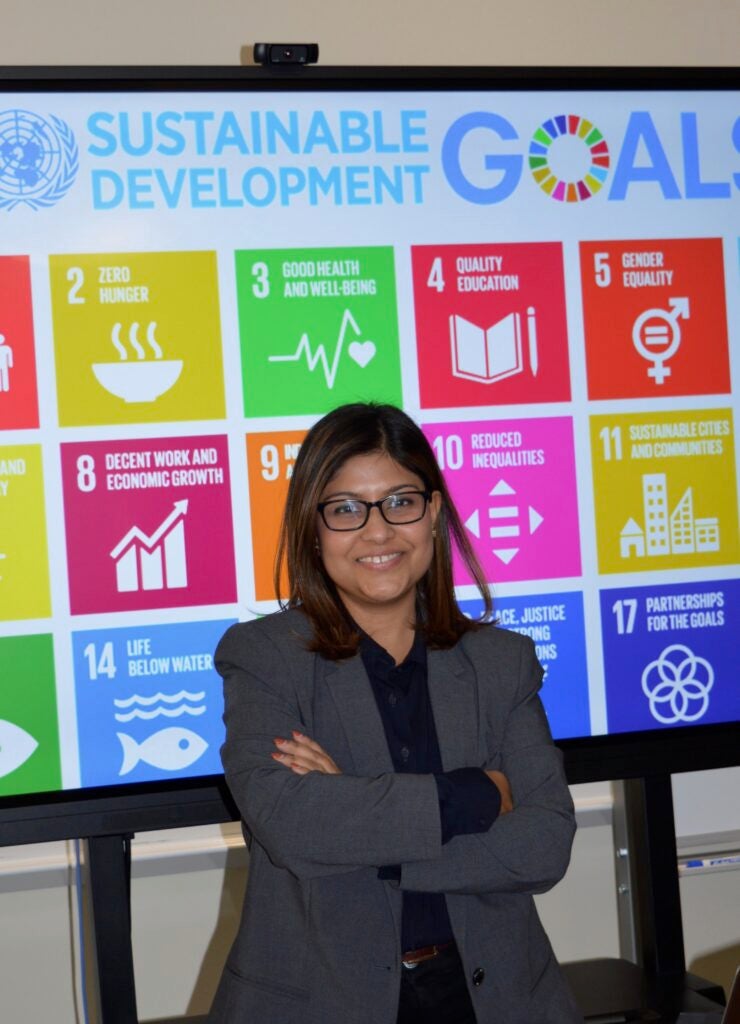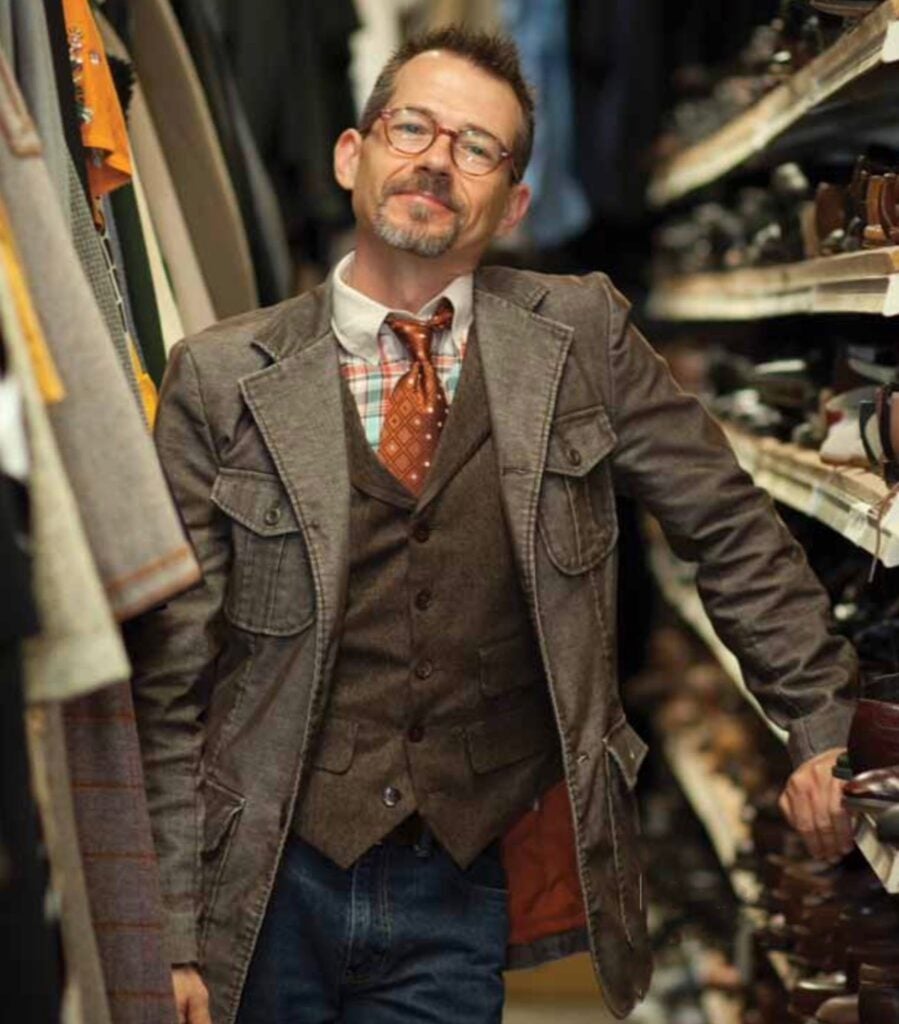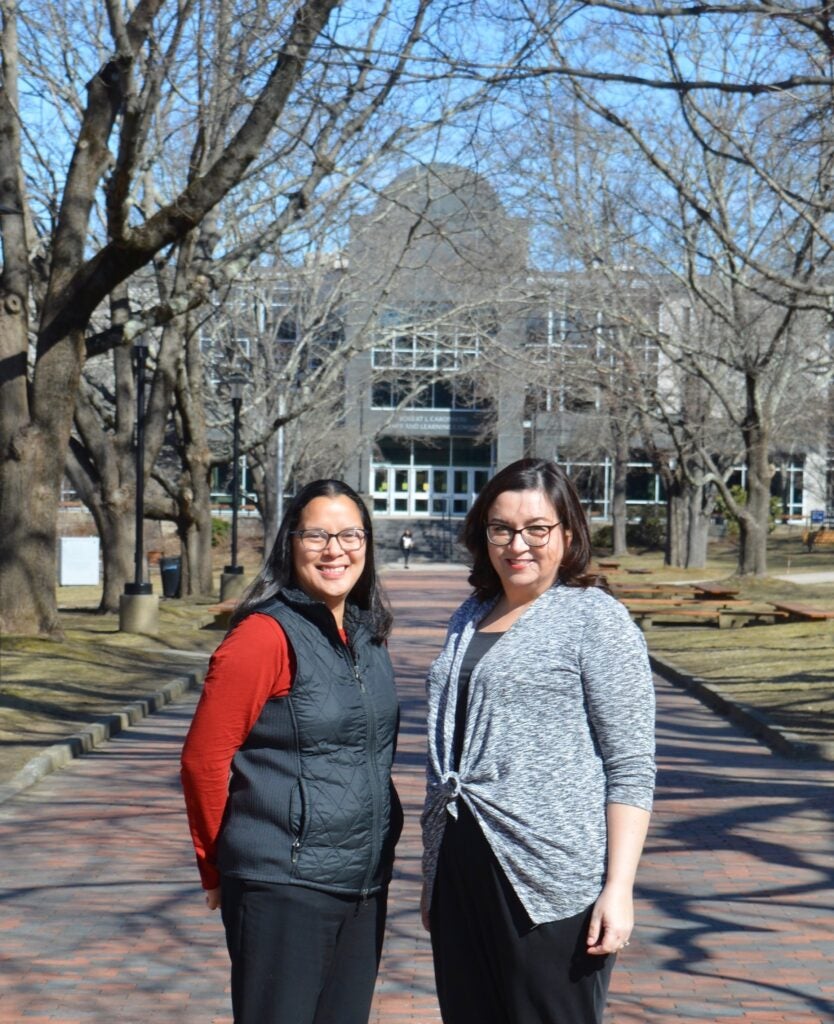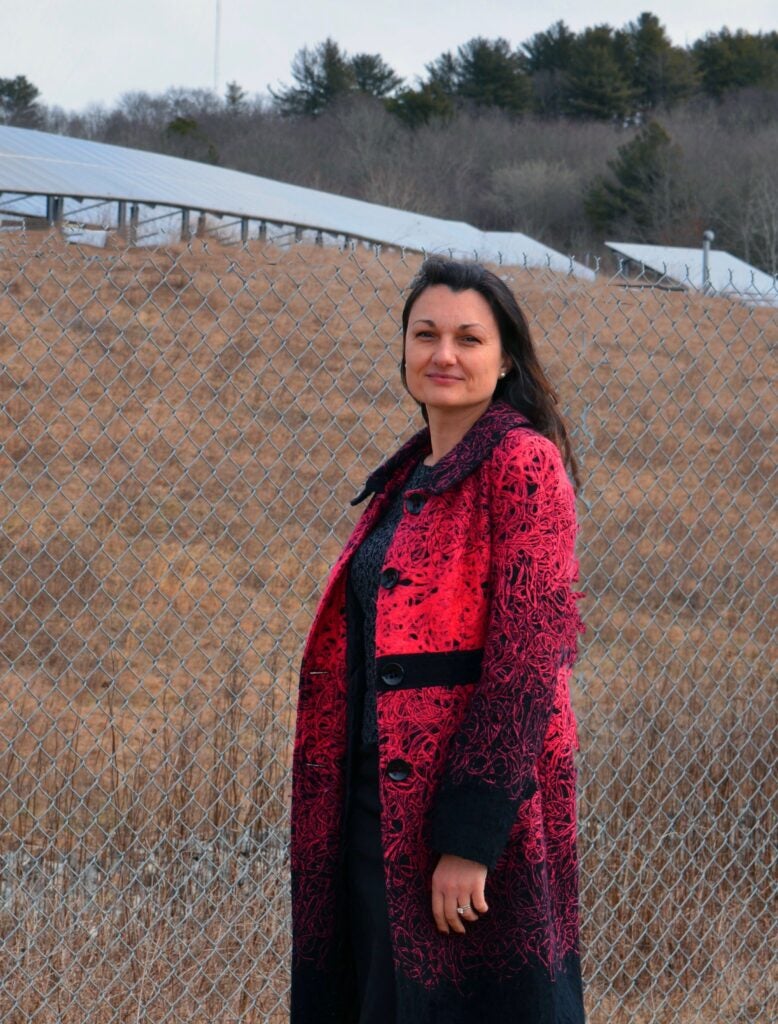May 17, 2023
The University of Rhode Island Office of Innovation in General Education has announced this year’s faculty members who are being recognized for delivering innovative courses as part of the General Education Program.
This year’s highlighted faculty are: Saheli Goswami, assistant professor in Textiles, Fashion Merchandising and Design; David Howard, professor and department chair of Theatre; Melissa Boyd-Colvin and Melissa Camba-Kelsay, director and assistant director, respectively, of the Center for Student Leadership Development; and Simona Trandafir, associate professor in Environmental and Natural Resource Economics.

Saheli Goswami
College of Business, TMD 103G: Textiles, Fashion and Sustainability
In exploring the ethical challenges around sustainability, TMD103G: Textiles, Fashion, and Sustainability takes a holistic view in examining how issues such as racial disparagement, climate change, and gender inequality relate to the textiles and fashion supply chain. In this course, Professor Saheli Goswami introduces her students to the fundamental notion that, while fashion supply chain contributes to the problems of sustainability, the industry is also working hard to create lasting solutions. Whether they are discussing greenhouse gases and the impact of manufacturing processes or labor issues and work conditions in manufacturing, students must grapple with the absence of distinctly right or wrong answers. For Professor Goswami, this is a powerful aspect of the course—exposing students to the ambiguity of the subject so they can become comfortable with the lack of concrete answers or prescribed actions when navigating the complexity of sustainability. Throughout the semester, students engage with issues of global responsibility and reflect on their own consumer behavior. For the culminating course assignment, students are charged with developing a radical solution to address a social, environmental, or economic concern. Through this research-oriented project, students explore their critical and creative sides and are encouraged to be true innovators in positing how they would modify current structures like government or education to make their solution plausible. Professor Goswami’s passion for the course comes from personal origins and this firsthand industry experience is what motivates her to help students feel empowered when they are confronted with the obstacles of industry. “This is a decisive decade and encountering learning by doing can be the difference that pushes my students to find resolutions beyond the boundaries of the classroom, so they realize they have the power and skill to create meaningful change.”

David Howard
College of Arts and Sciences, THE 351: Principles and Theories of Theatrical Costuming I
Clothing is a common thread that serves to connect us all, past and present, and helping students to recognize and understand costuming as this powerful historic, cultural, and social tool is the ambition of THE351: Principles and Theories of Theatrical Costuming I.What is our relationship to clothing and what does clothing reveal about people and society? These are the foundational questions Professor David Howard uses to engage students beyond the obvious aesthetics and help them critically analyze the impact and influence of clothing. At the center of the course is the reciprocal relationship between fashion and history. Just as fashion defines cultural timeframes and creates discourse, social movements, scientific advancements, and political upheaval have influenced how people choose to adorn themselves. Open to all majors, this 300-level course delivers the Arts and Design and Information Literacy outcomes. Using skills derived from better information literacy, students are pressed to curate a mindset that pursues evidence beyond the easy and obvious choices. The culminating course assignment has students exploring historical genres to examine the historical truths of costumes. Using visual references and primary sources, students evaluate and assess if selected costumes are an accurate replication of the time period they are meant to reflect. This assignment invites students to think about and appreciate history by immersing themselves in the time period and allowing the past to feel relatable. For Professor Howard, this research experience is about building empathy for other cultures and recognizing our interconnectivity. “I teach this course every single semester yet it still amps me up and feels like the first time I taught it. Having my students start out not knowing what this course is really about and then seeing it resonate with them feeds my soul.”

Melissa Boyd-Colvin and Melissa Camba-Kelsay
College of Health Sciences, HDF 412: Historical, Multi-Ethnic, and Alternative Leadership
Inclusive leadership is far more than a catch phrase or trending topic for Instructors Melissa Boyd-Colvin and Melissa Camba-Kelsay—it is their passion, their life’s work, and the focus of HDF412: Historical, Multi-Ethnic, and Alternative Leadership. As a capstone course for the minor in Leadership Studies, HDF412 presses students to examine theoretical models of leadership development and crisis leadership through the lens of culture, difference, and identity development. Whether the assignment is selecting a leadership theory and critically analyzing if it makes sense for “you and your identity” or evaluating a crisis of leadership in the last decade like the pandemic or a school shooting, students confront real-world challenges within diverse communities and reflect on their own personal story of socialization and where they fit in. From the start of the semester, the goal is to create a safe space where students can feel comfortable and supported to reflect on and share their perspectives and experiences. As Instructor Camba-Kelsay notes, “Inclusion is more than just an open door—it’s understanding someone’s individual experience and then becoming an inclusive leader.” Central to the course is understanding others’ journey and realizing that lived experiences are different even when the path is the same. During the second half of the course, focus shifts from the individual to the institutional level and discussion centers on what action looks like and how one can lead change. For Instructor Boyd-Colvin, “Leadership and identity are intertwined. I hope my students leave the University confident in who they are and are able to communicate about these issues and create change.” Knowing their story and believing their unique journey is a valid one, is a powerful learning experience that will no doubt take students where they need to go.

Simona Trandafir
College of the Environment and Life Sciences, EEC 352G: Economics of Small-Scale Renewable Energy Systems
The global implications of renewable energy economics are the central issue that Professor Simona Trandafir introduces in EEC352G: Economics of Small-Scale Renewable Energy Systems. Professor Trandafir provides an array of perspectives on the issue of fossil fuels and renewable energy, inviting industry leaders and state agencies to guest lecture throughout the semester. Students are also given the opportunity to participate in enriching field trips to learn more about the topic, which is where Professor Trandafir feels her students “gain a deeper understanding of the technology and infrastructure behind renewable energy systems and see the impact these systems have on the environment and communities.” Numerous homework assignments call for students to work on real-world problems, such as benchmarking energy in a building and determining how it can be made more efficient and comparing the costs of different renewable energies by using software that is employed by the Department of Energy. At the start of the semester, students make a pledge to commit to one energy-saving activity and are rewarded based on its long-term impact, underscoring how one tiny change or action can affect the larger community and big picture. For their final project, students work in groups to tackle a real-world scenario and plan a renewable energy system for a remote village community. The group must come up with meaningful solutions to address the energy needs of these remote communities as well as determine the source of the funding. According to Professor Trandafir, “Few people really understand the complexities of this market. If students walk away understanding how fossil fuel can be replaced by other sources, they will have the tools to go into the community and discuss the issues.”
